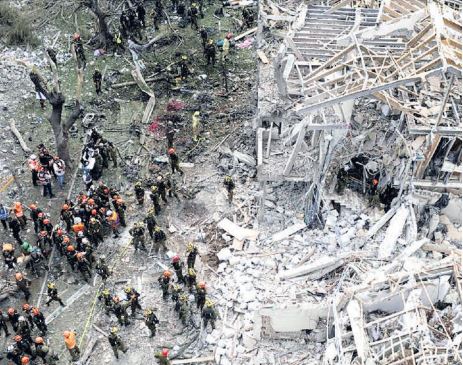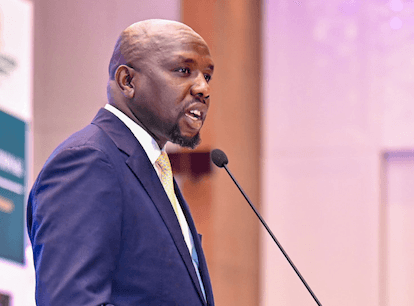The world is once again sliding towards an era defined by violence and rivalry. From the devastation in Gaza and the spiraling hostilities between Iran and the US, to the prolonged war in Ukraine and simmering tensions in the Indo-Pacific, conflicts are multiplying—and the global response often seems reactive, fragmented or overtly militarised.
Amid this instability, a different kind of thinking is emerging, one that places emphasis on sovereignty, dialogue and development over domination.
It is not about one country's model being superior to another—it is about recognising that a more inclusive, multipolar approach to international peace is not just desirable, but necessary.
Take the Middle East. The crisis in Gaza has reached tragic proportions, with tens of thousands of civilian casualties, widespread destruction and little prospect of a durable solution. US-Iran tensions, already fraught, have intensified dramatically following recent military exchanges.
The danger of a broader regional war is no longer theoretical—it is imminent. Traditional mediation frameworks appear exhausted, while humanitarian needs soar and political distrust deepens.
Yet, outside the western bloc, other diplomatic efforts have quietly gained traction. Some of these emphasise the importance of regional dialogue, non-interference and economic cooperation as stabilising tools. These approaches often come from countries not historically aligned with military interventionism—China being a notable example.
China has, in recent years, proposed alternative frameworks for conflict resolution. While these are often viewed with skepticism in the West, they reflect broader trends in the Global South; a growing appetite for conflict resolution mechanisms that prioritise national sovereignty, regional stability and development as a foundation for peace.
These principles are gaining traction not because of who proposes them, but because they offer a response to what many perceive as the limits of militarised diplomacy.
The success of Beijing’s role in helping restore diplomatic ties between Saudi Arabia and Iran in 2023 was a reminder that not all influence must come through force.
It was a pragmatic, quiet intervention—far removed from the public spectacles of shuttle diplomacy—and it delivered tangible results.
Whether this style of mediation can be replicated elsewhere remains uncertain, but the method—patient, regionally anchored and focused on long-term normalisation—is one the world should pay closer attention to.
Meanwhile, the war in Ukraine continues with no end in sight. The conflict has locked Russia and Nato in a deepening geopolitical confrontation, with devastating consequences for Ukrainians and growing fatigue among the global community.
Most peace proposals from outside Europe, including some from China, have been criticised for vagueness or lack of concrete steps.
Yet, these initiatives do reflect an important reality; many nations are calling for diplomacy and dialogue over escalation, even if the pathways to such negotiations remain difficult to chart.
Africa, too, remains beset by chronic instability—from Sudan’s civil war to violent extremism in the Sahel—yet global attention and resources remain largely diverted elsewhere.
Many countries on the continent have welcomed infrastructure investments and development-oriented engagement from emerging powers, not because they are blind to risks, but because the alternatives have often failed to deliver lasting peace or economic inclusion.
None of this is to suggest that development guarantees peace or that all foreign initiatives are altruistic. Every major power, including China, acts based on national interest.
The point is that expanding the diplomatic toolkit beyond sanctions and airstrikes—and including economic cooperation, respect for sovereignty and multilateral dialogue—may offer a better foundation for durable peace.
A truly multipolar approach to global security would not rely on any one nation’s leadership. It would empower regional organisations, build inclusive international mechanisms and prioritise the long-term needs of civilians over short-term strategic gains.
It would also demand accountability, transparency and a commitment to human dignity from all actors involved—whether they are longstanding powers or rising ones.
The current wave of global conflicts—from Europe to the Middle East to Africa—has exposed the limitations of existing approaches to peace building. Military deterrence alone has not worked. Unilateralism has eroded trust.
As President Xi Jinping put it in a 2020 UN speech, “We must firmly uphold multilateralism and safeguard the international system with the UN at its core.” Such a perspective underscores the urgency of reforming the global security architecture to prioritise cooperation over coercion.
As new voices and new frameworks emerge—whether from China, the Global South, or non-governmental actors—the international community should not dismiss them reflexively. Instead, it should ask what is working, what is failing and how we might build a more inclusive, less militarised global order.
The choice is not between East or West, power or passivity. It is between continuing cycles of confrontation or seeking out new models that reflect the interconnected, multipolar reality of today’s world.
The writer is a Journalist and a communication consultant




















